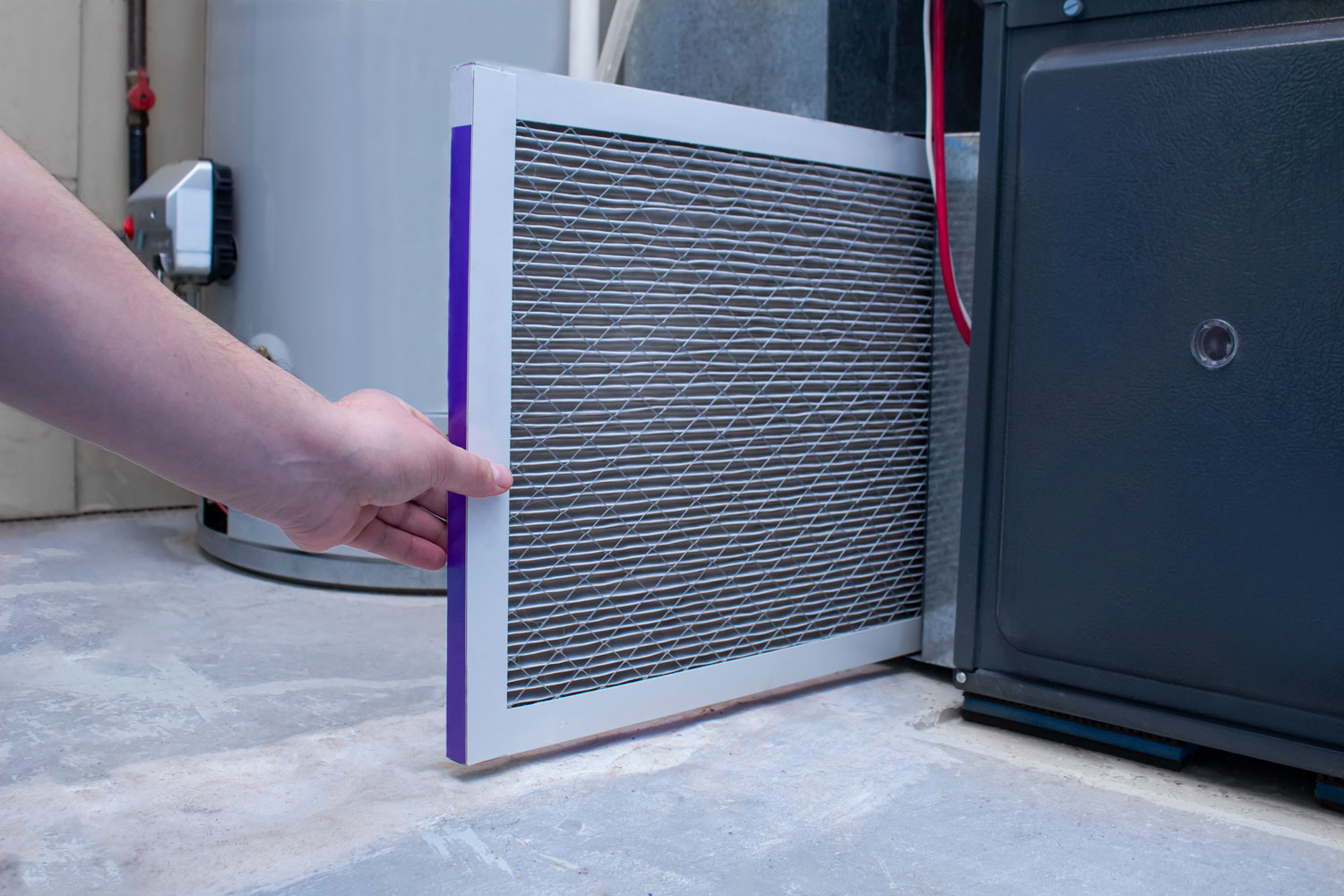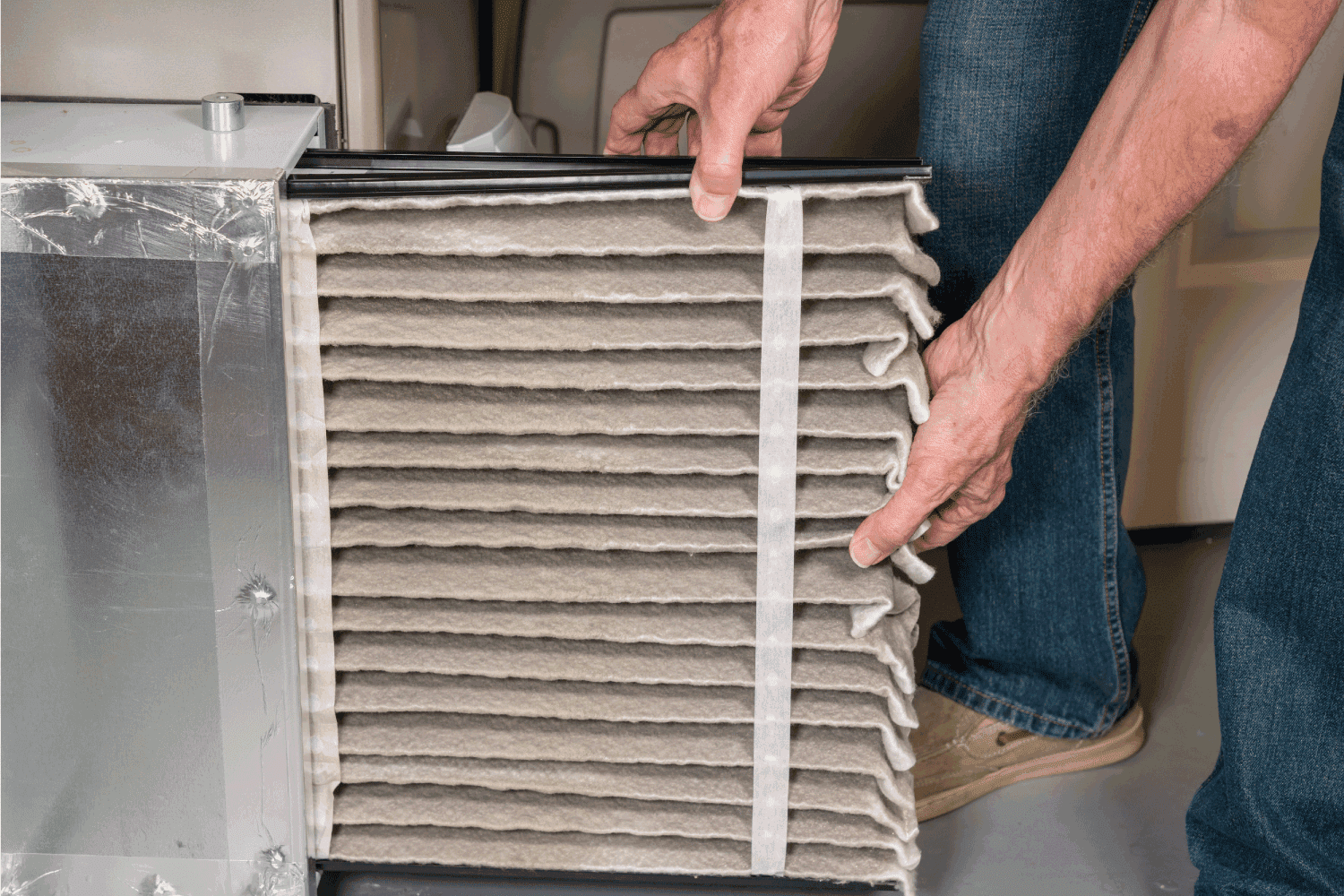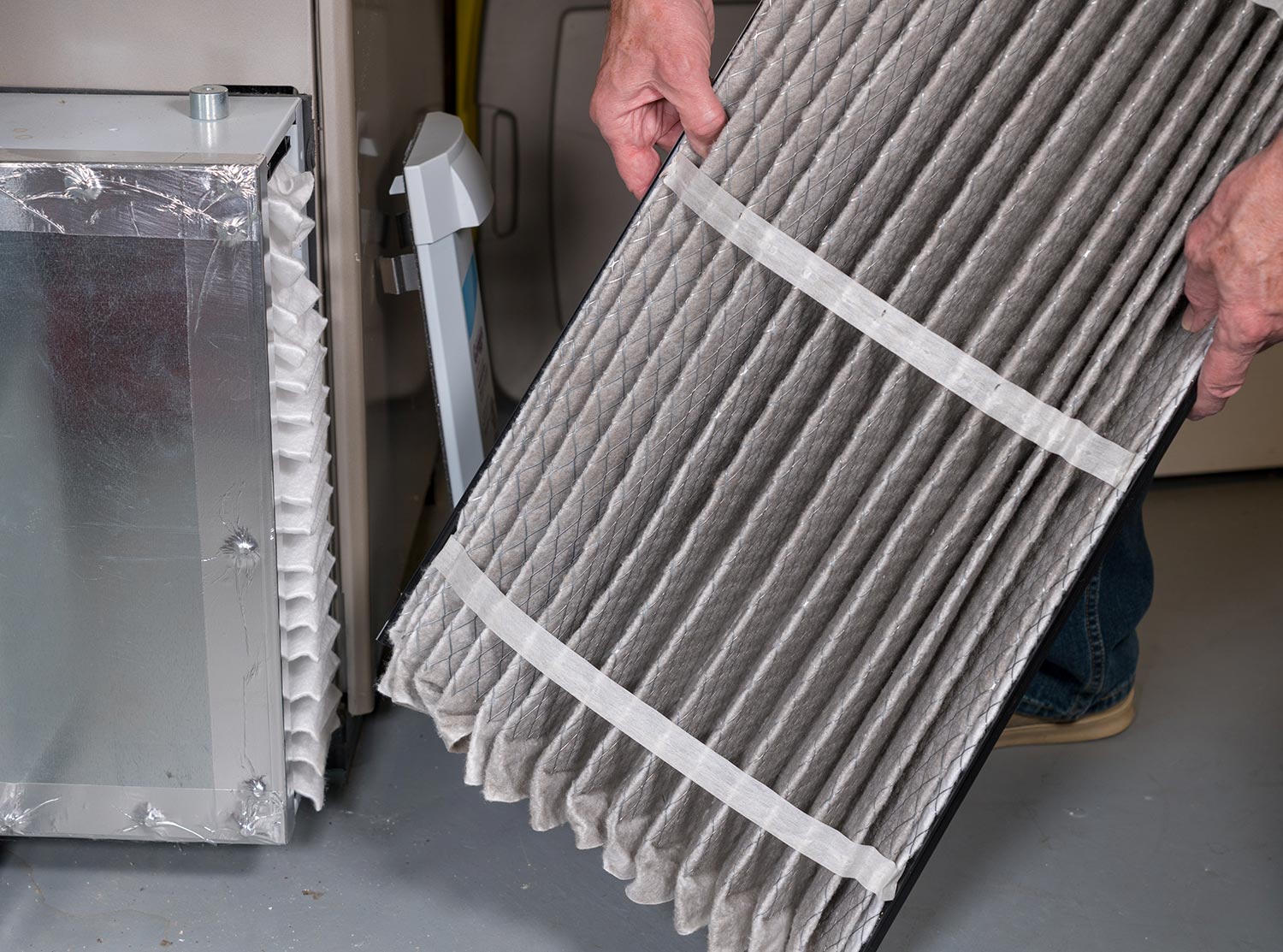Like cars, furnaces need clean airflow to run efficiently. To do so, furnaces need to run through an air filter to catch any debris as it runs. However, does that mean all furnaces have filters, and can they run without one? We have researched for you to answer that question below!
Yes, all furnaces have filters, and they need them to run correctly. Under no circumstances should you run your furnace without a filter. If you run your furnace without a filter, the following issues can happen:
- Higher Heating Costs
- The furnace's motor could overheat and burn out
- Furnace Parts can Corrode or Break Down
- Health Problems
- Short Cycling
- Ducts can Clog
- Furnace Break Down
As you can see, it can be a significant risk to run your furnace without a filter. The furnace may still heat your home, but there are several downfalls in the long run. This article will discuss the different types of furnaces that need air filters and how they function. In addition, we will discuss the potential risks of not using an air filter in your furnace, so read on!
![Male hands are installing a furnace air filter, Do All Furnaces Have Filters? [And Can Yours Run Without One]](https://hvacseer.com/wp-content/uploads/2021/12/Do-All-Furnaces-Have-Filters-And-Can-Yours-Run-Without-One-.png)
Do All Furnaces Have Filters [And Can Yours Run Without One]?
Before we get into the different types of furnaces that need to run through filters, it is important to discuss whether they have air filters. The answer is yes - all modern home furnaces will come with a filter that helps catch allergens, bacteria, and other harmful particles.

Different Types of Furnaces that Need Filters
There are several different types of furnaces you will find in a home, depending on the age of the house. In addition, there are significant differences in size as well. Furnaces can range in size from a small closet-sized furnace to a large industrial furnace. The filters needed for these furnaces also vary in size.
The three most common types of furnaces are gas furnaces, electric furnaces, and oil furnaces. Gas and electric furnaces are the most common in newer homes, while oil furnaces are found in older homes. Each of these furnaces has its pros and cons, but they all need clean filters to function correctly.
No matter what type of furnace you have, it is necessary to change your air filter every 3-12 months. The amount of time you have between air filter changes will vary depending on how often your furnace runs, the type of filter you have, and the size of your furnace. It is essential to keep an eye on your filter and change it when needed to maintain a healthy furnace.
What happens if you don't have a furnace filter?
Now that you know all furnaces come with filters and need them to run correctly, you may wonder what the risks are of not having a filter. The list below is a few of the potential risks of running your furnace without a filter:
Higher Heating Costs
Without a filter, the furnace has to work harder to heat your home. Running your furnace without a filter over time will increase your heating costs and reduce the heater's lifetime. In addition, your furnace may not be working as efficiently, leading to inefficient use of energy.
The Furnace's Motor Could Overheat
Having a dirty filter can cause the furnace to overheat because it has too much debris. If this happens, the motor in your furnace could burn out and need replacing.
Furnace Parts can Corrode or Break Down
Over time having a dirty filter in your system will damage the components of your furnace. Corrosion or build-ups in the system mainly cause this. Depending on the age of your furnace, it may be more susceptible to these damages.
Health Problems
Having a dirty air filter will cause health problems for you and your family. Dirty filters trap various allergens, germs, and other particles that could put you at risk for respiratory issues such as asthma and other respiratory problems.
Short Cycling and Efficiency Loss
Short cycling is when your furnace turns off and on frequently. This is caused by not having a filter and, in turn, traps too much debris, causing the system to overheat, as mentioned above. In addition, short cycling can also be caused by an oversized furnace or one running in the wrong settings for your home.
Ducts can Clog
If your furnace has no air filter, it can also cause the ducts in your system to become clogged. This will reduce the airflow in your home and could lead to increased energy bills.
Furnace Break Down
The absolute risk of not having a furnace filter is that your furnace may break down. This can be caused by many different factors, such as the ones listed above. If your furnace breaks down, it will most likely need to be replaced, which can be expensive.
As you can see, only take your furnace filter out if you plan on replacing it with a new one or if you are doing a monthly cleaning on the current one!

Is no air filter better than a dirty one?
There is no right or wrong answer to this question, as it depends on each situation. However, if you are running your furnace without a filter, you should be aware of the risks and be prepared to replace the furnace if it breaks down.
On the other hand, if you have a dirty air filter, you should replace it as soon as possible to avoid any of the risks mentioned above. If you have a permanent filter and experience a lot of pet hair or debris in your filter, then clean it monthly to ensure you have quality air in your home.
Can you clean and reuse a furnace filter?
In most cases, it is safe to clean and reuse a furnace filter. If you have a permanent filter, use a brush or vacuum cleaner with a hose attachment to remove the debris from the filter. You can also lightly wash your permanent filters if necessary.
Disposable filters should be thrown away and replaced around every three months. When disposing of your disposable filter, make sure to seal it in a plastic bag before putting it in the trash can. This will help prevent any allergens or debris from escaping and affecting those around you.

How do you know when to replace your furnace filter?
Replacing your filter will depend on what size of filter you have. For example, filters that are 1-2 inches thick usually are changed every three months.
Then the more extensive filters around 3-4 inches thick can usually make it six to nine months before needing a replacement. Lastly, the macho thick filters around 6 inches can make it a year before needing a replacement.
There are a few ways to know what type of furnace filter to get. The easiest way is to look at your furnace. On the side or the top, you should find a label that tells you the size of your filter.
If you do not have your furnace manual, you can also find the size of your filter online. Search for "your furnace brand name" + "filter size."
Once you have the size of your filter, you can go to your local hardware store or home improvement store and buy a filter that is the same size as the one you have.
It is important to note that not all filters are made the same. Some filters are designed to last longer than others, so you must get the correct type of filter for your furnace.
If you have any questions about what kind of filter to get, you can always call your local HVAC technician for help.
Final Thoughts
As you can see from this article, filters are vital to the air quality in your home. If you are moving into your new home, be sure to ask about the furnace health and the last time the filter was changed.
Filters are not just a one-time yearly event, and they should be checked monthly for allergies and cleaned every three months to save energy.
If you liked this article, then you should also read:
Do Furnaces Have SEER Ratings?
